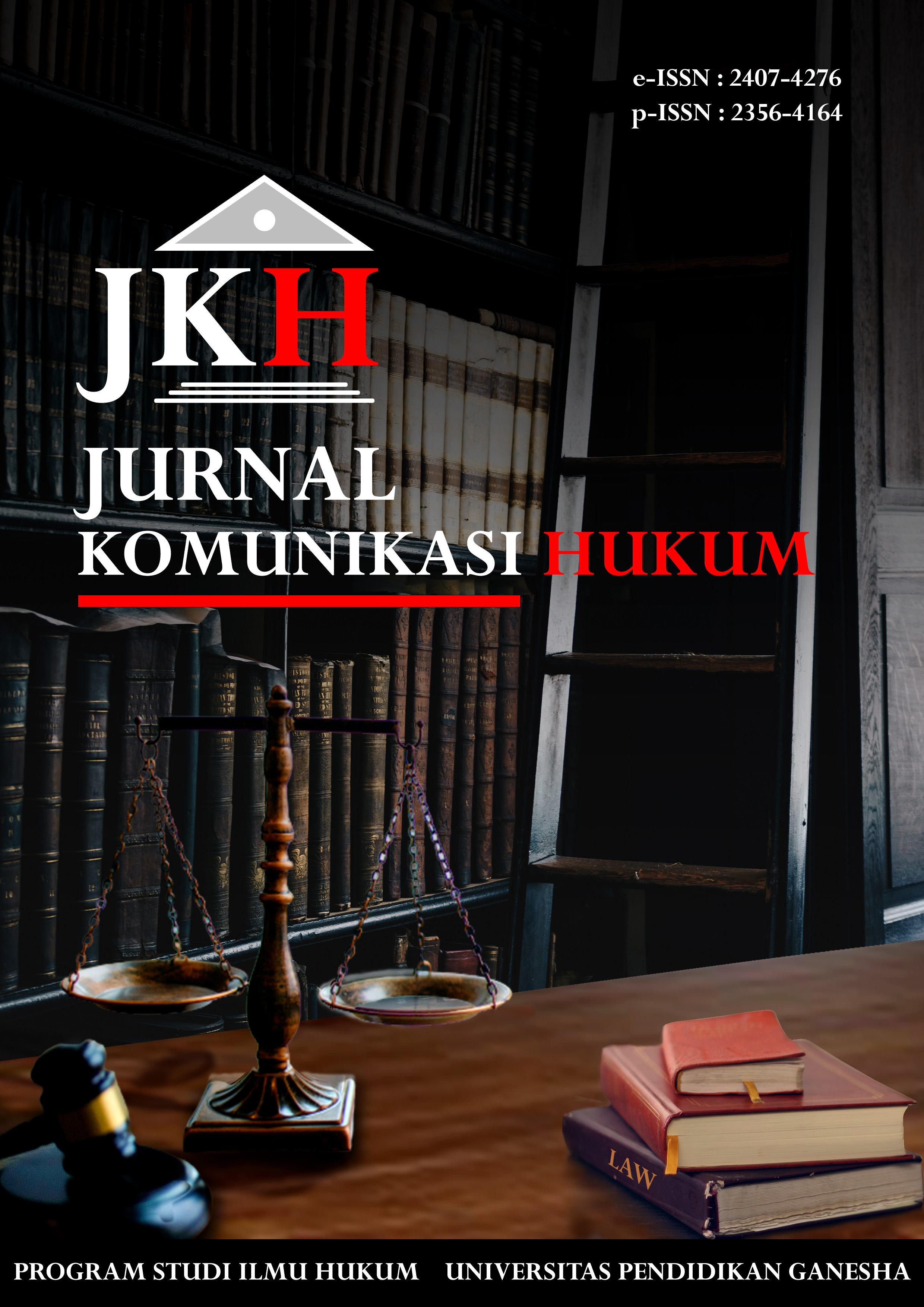Penyelesaian Sengketa Adat Mengenai Tapal Batas Antara Desa Pakraman Penatih Puri dan Desa Pakraman Peguyangan
DOI:
https://doi.org/10.23887/jkh.v7i1.31469Keywords:
Tapal Batas, Awig-awig, Pakraman VillageAbstract
Blurred village boundaries can cause confusion in the implementation of village services, pawedalan, punia funds, kasucianism and non-compliance for local residents. This condition is believed by Hindus to cause disruption of social balance (sekala) and magic (niskala). As a result of the unclear territorial boundaries of the Pakraman village, there was a customary reaction in Pakraman Penatih Puri Village with Pakraman Peguyangan Village. This research will discuss 2 (two) main points, namely: (1) How is the settlement of customary disputes regarding the boundaries between Pakraman Penatih Puri Village and Pakraman Peguyangan Village? (2) What are the factors that hinder the settlement of customary disputes regarding the boundary between Pakraman Penatih Puri and Pakraman Peguyangan villages? This type of research is qualitative research that is descriptive and analytical in nature. Settlement of customary disputes regarding the boundaries between Pakraman Penatih Puri Village and Pakraman Peguyangan Village which are resolved by means of mediation by making a collective agreement or pararem which is used as the legal basis in the Pakraman village. Awig-awig is made in order to create harmony and security in society.
Downloads
Published
How to Cite
Issue
Section
License
Authors who publish with this journal agree to the following terms:- Authors retain copyright and grant the journal right of first publication with the work simultaneously licensed under a Creative Commons Attribution License that allows others to share the work with an acknowledgement of the work's authorship and initial publication in this journal.
- Authors are able to enter into separate, additional contractual arrangements for the non-exclusive distribution of the journal's published version of the work (e.g., post it to an institutional repository or publish it in a book), with an acknowledgement of its initial publication in this journal.
- Authors are permitted and encouraged to post their work online (e.g., in institutional repositories or on their website) prior to and during the submission process, as it can lead to productive exchanges, as well as earlier and greater citation of published work (See The Effect of Open Access).
Authors who publish with this journal agree to the following terms:
- Authors retain copyright and grant the journal right of first publication, with the work [SPECIFY PERIOD OF TIME] after publication simultaneously licensed under aCreative Commons Attribution License that allows others to share the work with an acknowledgement of the work's authorship and initial publication in this journal.
- Authors are able to enter into separate, additional contractual arrangements for the non-exclusive distribution of the journal's published version of the work (e.g., post it to an institutional repository or publish it in a book), with an acknowledgement of its initial publication in this journal.
- Authors are permitted and encouraged to post their work online (e.g., in institutional repositories or on their website) prior to and during the submission process, as it can lead to productive exchanges, as well as earlier and greater citation of published work (See The Effect of Open Access).












